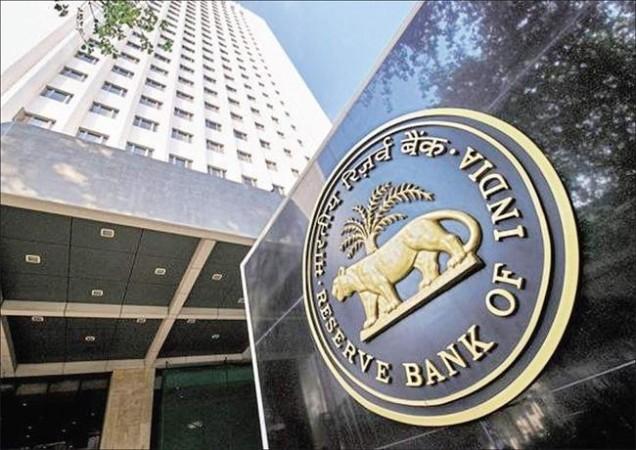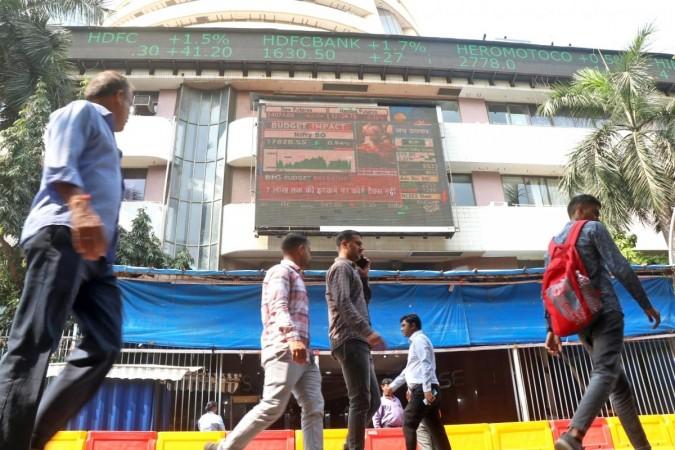
The Indian stock market experienced a significant upswing this week, with nine of the country's ten most valued firms collectively adding Rs 1,00,850.96 crore to their market capitalisation. This surge was driven by a robust performance in the equity markets, as the benchmark Sensex climbed by 737.98 points, or 0.90 percent, reflecting a wave of optimism among investors. The positive momentum was supported by expectations of steady economic growth and improved investor sentiment ahead of key economic data and global cues.
At the forefront of this market rally was HDFC Bank, which recorded the highest market cap gain among its peers. The private sector banking giant saw its market valuation soar by Rs 26,668.23 crore, bringing its total market capitalisation to an impressive Rs 15,15,853.85 crore. This substantial increase underscores the bank's strong position in the financial sector and its ability to attract investor confidence. Bajaj Finance also posted a commendable performance, with its market cap rising by Rs 12,322.96 crore during the week. The company's market capitalisation now stands at Rs 5,82,469.45 crore, highlighting its resilience and growth potential in the financial services sector.

Similarly, ICICI Bank witnessed a market valuation increase of Rs 9,790.87 crore, reaching a total of Rs 10,41,053.07 crore. These gains reflect the positive sentiment surrounding the banking sector and its role in driving economic growth. Hindustan Unilever, a major player in the fast-moving consumer goods (FMCG) sector, added Rs 9,280.89 crore to its market cap, bringing it to Rs 5,61,282.11 crore. This increase is indicative of the company's strong brand presence and its ability to navigate market challenges effectively.
Telecom and Insurance Sectors Show Strength
Bharti Airtel, a leading telecommunications provider, saw its market valuation rise by Rs 7,127.63 crore, reaching Rs 10,65,894.55 crore. The telecom sector's growth prospects and Bharti Airtel's strategic initiatives have contributed to this positive momentum. Meanwhile, the Life Insurance Corporation of India (LIC) experienced a market cap increase of Rs 3,953.12 crore, pushing its valuation to Rs 6,07,073.28 crore. This gain reflects the company's continued dominance in the insurance sector and its ability to adapt to changing market dynamics.

Infosys, a leading IT services provider, recorded a smaller increase of Rs 519.27 crore, bringing its total market capitalisation to Rs 6,49,739.73 crore. Despite the modest gain, Infosys remains a key player in the technology sector, with a strong focus on innovation and digital transformation. State Bank of India (SBI), the country's largest public sector bank, saw a market cap increase of Rs 401.61 crore, taking its valuation to Rs 7,25,437.74 crore. This gain highlights the bank's pivotal role in the Indian banking landscape and its efforts to enhance operational efficiency and customer service.
In contrast to the overall positive trend, Tata Consultancy Services (TCS) was the only company among the top ten to experience a decline in market value. The IT giant's market cap dropped by Rs 28,510.53 crore during the week, settling at Rs 12,24,975.89 crore. While the specific reasons for this decline were not mentioned, it underscores the challenges faced by the IT sector in maintaining growth amid evolving market conditions.
Historical Context and Strategic Insights
The recent surge in market capitalisation among India's top firms is reminiscent of past instances where positive economic indicators and investor confidence have driven market rallies. Historically, periods of economic stability, favorable government policies, and strong corporate earnings have often led to significant gains in market capitalisation for leading companies. For instance, in 2021, the Indian stock market witnessed a similar rally as the economy rebounded from the impact of the COVID-19 pandemic. During that period, a combination of fiscal stimulus measures, accommodative monetary policies, and a robust vaccination drive contributed to a surge in investor confidence and market valuations.
The recent market performance highlights the importance of strategic initiatives and effective management in driving growth for top companies. Firms that have successfully navigated market challenges have often employed a combination of innovation, diversification, and customer-centric approaches to maintain their competitive edge. For example, HDFC Bank's focus on digital transformation and customer engagement has played a crucial role in its market cap growth. By leveraging technology to enhance customer experiences and streamline operations, the bank has positioned itself as a leader in the financial services sector.
Similarly, companies like Bajaj Finance and ICICI Bank have capitalized on their strong brand presence and diversified product offerings to attract a broad customer base. Their ability to adapt to changing market dynamics and deliver value to stakeholders has been instrumental in driving their market cap gains. The positive momentum was supported by expectations of steady economic growth and improved investor sentiment ahead of key economic data and global cues.
Market Sentiment and Future Outlook
Despite the setback for TCS, the overall market sentiment remained upbeat, with investors showing confidence across various sectors. The positive momentum was supported by expectations of steady economic growth and improved investor sentiment ahead of key economic data and global cues. Market experts believe that the Indian economy's resilience and the government's pro-growth policies have contributed to this optimistic outlook. The recent surge in market capitalisation among India's top firms underscores the resilience and growth potential of the Indian economy.
As the country continues to navigate global economic challenges, the performance of these leading companies serves as a testament to their strategic vision and ability to capitalize on emerging opportunities. Looking ahead, market participants will closely monitor key economic indicators, policy developments, and global cues to assess the sustainability of this positive momentum. With a focus on innovation, customer engagement, and operational excellence, India's top firms are well-positioned to drive long-term growth and create value for investors.
The recent market performance highlights the importance of strategic initiatives and effective management in driving growth for top companies. Firms that have successfully navigated market challenges have often employed a combination of innovation, diversification, and customer-centric approaches to maintain their competitive edge. For example, HDFC Bank's focus on digital transformation and customer engagement has played a crucial role in its market cap growth. By leveraging technology to enhance customer experiences and streamline operations, the bank has positioned itself as a leader in the financial services sector.
The recent surge in market capitalisation among India's top firms underscores the resilience and growth potential of the Indian economy. As the country continues to navigate global economic challenges, the performance of these leading companies serves as a testament to their strategic vision and ability to capitalize on emerging opportunities. Looking ahead, market participants will closely monitor key economic indicators, policy developments, and global cues to assess the sustainability of this positive momentum. With a focus on innovation, customer engagement, and operational excellence, India's top firms are well-positioned to drive long-term growth and create value for investors.

















